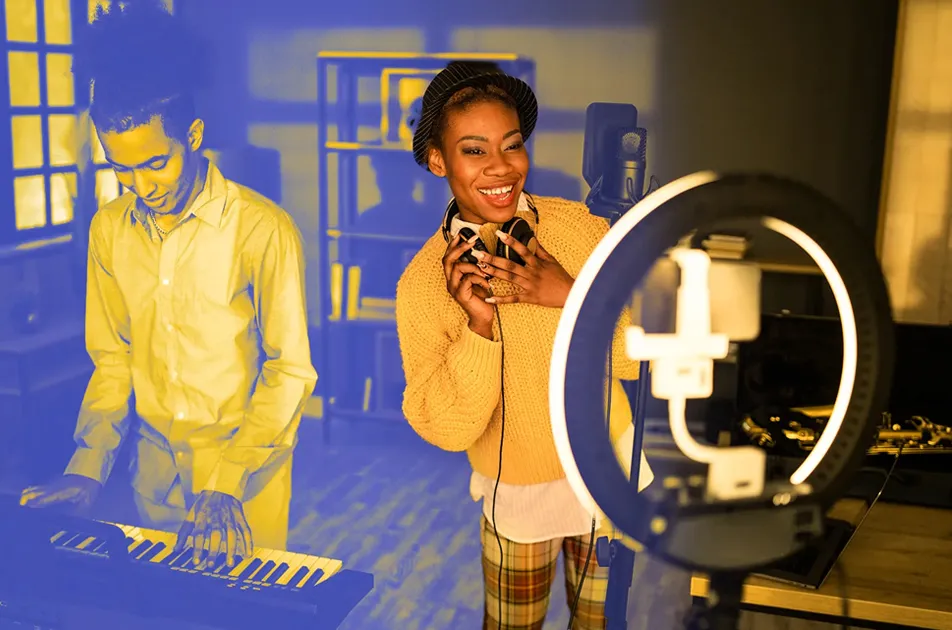________________________________________
Guest Post by Kevin Cornell on Tunecore.comWe’re back with the second installment of our Artist Management Series, where we’ve been talking with current managers of independent artists about their day-to-day roles and responsibilities, how their coveted position has changed over the years, and the lessons and misconceptions they’ve encountered.Last week you got to learn about Vanessa Magos at New Torch Entertainment, and this week we’re psyched to share our chat with Mark McLewee from Red Light Management! Mark has been helping with the day-to-day management of Bonobo, ODESZA and Ki: Theory. Check out the interview below.Has the way artist/manager relationships begin changed much in the last 5-10 years?
Mark McLewee: While I’ve only been in the business for five years, it hasn’t changed much. It’s still a process: an artist finding a manager who truly believes in the music and them as a person first. It’s important for an artist to remain focused on finding someone who isn’t going to be a yes-man or someone to just turn the keys over to and say, “Go do what it takes to make me a successful musician.”It’s all about finding a person the artist can trust; someone who believes in their music, and can be their advocate. You want someone to bounce ideas off of and be a reality check, but also guide you through this ever-changing and often daunting landscape.Vice versa, managers are ultimately looking for an artist who’s willing to put in the work that’s required. An artist who has a clear vision of what their art is and how they want it to be presented to the world. It’s the manager’s job to go out and help execute that mission – to bring in opportunities that grow the artist’s career without compromising their art, and to handle all the details.How did you begin as an artist manager?
I started as an intern at the Artist Farm, working with the Infamous Stringdusters, basically helping out wherever I could. Then I began helping with their merch and I helped them build a website. I tried to glean as much as I could from artist managers and members of the band themselves. From there, I got a job over here at Red Light doing day-to-day management through some connections I had made while at the Artist Farm.What are a couple of the key lessons have you learned as an artist manager over the years?
I think that good music will prevail. It has a way of finding its way into the public ear and making itself known. The job of a manager is to facilitate that and to set your artist up to be rewarded as much and as fairly as possible for creating that music. It’s kind of a daunting proposition to take mediocre music and make it into something sustainable that can generate revenue for an artist. It’s a great gift to find an artist that makes amazing music, and it’s our responsibility as managers to make sure they’re rewarded for that.I guess the old adage of “It’s not what you know but who you know” is as true as ever in the music business. As much as there are horror stories about managers, agents and lawyers taking advantage of artists, there really are a lot of good people in the music industry who really care about music and artists. It can be harder to track those people down, and it seems a lot easier to find people who are ready to come in and just add you to their roster. But if you can track down a great team of people, it’ll end up making a huge difference in your career.In your experiences, what are some of the biggest misconceptions of an artist manager’s role(s)?
That’s hard for me to say. I think at least one misconception is that there’s sort of this sense of, “If I link up with a manager, he/she will know what to do and I can just make music. They’ll steer the ship and tell me what I need to do and guide me. They’ll take care of everything.” It’s a ‘hand-the-keys-over’ mentality. I don’t wanna harp on the small business notion, but the artist needs to be the leader and personality of their business. Even though you might have a manager in place, and later down the line a bigger team, you’re (the artist) still the central guiding force, and your team needs to know you’re as invested in it as they are.It becomes much more of a partnership than simply letting someone else steer. There are certainly managers that will do that, but to me, that’s not a sustainable relationship that turns into a lifelong career, one where an artist is looking back 10 years at music they can stand behind.Explain the importance of managing an artist’s expectations when it comes to getting the desired results of any given career goal.
I think it’s important in any aspect of life that your expectations are modest and you hope for the best while planning for the worst. Especially with young and independent artists – there’s always gonna be this phase of transition from hobbyist musician to professional musician – and that’s not a flip of the switch from working a 40-hour a week job to being a professional musician. It could be months, it could be a few years, (it could be never); there’s a stage where artists have to double up on a full time job and a full time music career. Many younger artists who see others go at it independently may not see that these people went through these career stages, too.When you begin working with an artist who lacks the network of a booking agent, publicist, etc., how do you approach building one with them?
If you didn’t have those built-in connections, I think there’s a lot to be said for getting out there as an artist, and hustling as much as you can. As an indie artist you should feel like the time to say, “I really need a manager or agent!” is when you’ve exhausted your personal energy and relationships. And when you’re at the stage where you have opportunities presented to you that you need help figuring out.People recognize hustle and genuine artistry. Whether it’s staying up all night finding music blogs and writing to every single one, knocking on the door of your local venue so you can get an opening slot – these are hustle plays that people, especially managers, recognize and want to work with. As a manager, it’s great having an artist who’s working as hard as you to match that energy. One connection leads to another, and it’ll sort of snowball from there. It’s not just sitting at your computer writing tweets, I’m talking about getting yourself out there and sharing your personality and drive with people.From a management perspective, the industry is full of personal connections that can help build a team without the need for a label. Like-minded people tend to gravitate toward each other and as a manager, the further in you get, the easier it is to find a team that shares your vision and work ethic.As more artists want to maintain their ‘independent’ status, how can managers assist in this goal?
Definitely. If you want to talk about the difference between now and 10-15 years ago, it’s totally possible to go in eyes-wide-open knowing and being fully aware of what you’re getting yourself into. Knowing about striking deals with labels where it’s more mutually beneficial and not just contingent on tons of sales. There are all kinds of great PR and independent radio promotion firms that can help you do all these things that were previously just this mystery behind the wall of a label.That said, a hardworking label can be a great addition to your team. We have the great fortune of working with an indie label that is very receptive of the artists’ vision, and is going to put in the same amount of work that you are. There’s no longer the sense that ‘to make it’ you have to be on a major label. Personally, a misconception for me prior to getting into the music business was that there was this sort of “yes or no” when it comes to the success of artists. There’s definitely a continuum of success, and there’s no formula to follow.When it comes to being presented with a label deal for one of the artists you work with, what factors do you and they have to take into consideration?
There’s two sides to it, one side being the level of commitment that the label is willing to put forward; not necessarily just speaking financially, but basically putting forward a legitimate team who is willing to battle for us like our agent or lawyer when it’s time to. I think there are some great indie labels out there that have good people who love music and will stand up for it, but those aren’t always the labels who come knocking with record deals.The other side is probably more obvious – making sure the deal terms are fair for your artist so you aren’t relinquishing too much control. That’s where, as an artist, you want to have a manager and lawyer who have worked on multiple recent deals.Having that stamp of approval from a credible label can certainly open up doors for an artist, but if the right team isn’t in place, it won’t serve the artist well in the long run.Related articles











